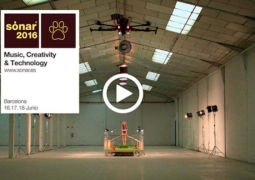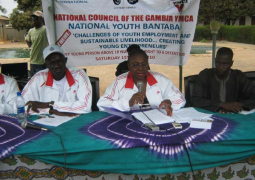
The
West African Association for the Development of Artisanal Fisheries (WADAF)
over the weekend organised a Training of Trainers course for various heads of fisherfolk
in The Gambia.
The
training of trainers course targeted 21 participants for each of the two
modules, and was held at the Bakau Community Center Friday and Saturday.
The
module two training course was held at the Fisheries Department in Banjul, from
27 to 28 November.
The
training of trainers’ course was in two modules; the first was focusing on
management of marine and coastal ecosystems and fisheries co-management, while
the second module focused on standards of international, regional, sub-regional
and national trade and impacts on fisheries professionals.
According
to the executive secretary of WADAF, Moussa Mbengue, the project is a follow up
to the first project of strengthening and structuring of capacities of
artisanal fisheries professional organisations in the seven countries of the
Sub Regional Fisheries Commission in West Africa, rolled out between 2010 and
2013.
He
said that the project focused on the training of 21 leaders carrying along with
them collective actions in favour of their AFPO, and of which 7 had been
financed during that phase.
According
to him, the new project, which should last for three years, consolidated the
impressive results of the first phase.
It
basically aims to strengthen the professional and political skills of the
artisanal fisheries professional organisations, and their autonomy in order to
improve their influence capability on fisheries public policies in the seven
countries covered by the sub regional fisheries commission.
In
this respect, he added, the main activity of the project is to continue and
strengthen the training of the 45 leader fishermen, fish whole-sellers and fish
processors from those 21 formed in the first phase and 24 new others.
Overall,
he said, there are five training modules; management of marine and coastal ecosystem
and co-management of sea resources (M.1); standard on international,
regional, sub-regional and national
trade and impacts on artisanal fisheries professional (M.2); management of fisheries processing
sites and artisanal valuation techniques of artisanal fisheries product (M.3);
management of organisation, equipment and infrastructures (M.4);
communication and advocacy (M.5)
These
modules were subject to an elaboration and adaption workshop held in Dakar,
followed by another regional workshop on the technical-launch of the training
activity.
According
to the executive secretary of WADAF, the first training sessions of module one,
management of marine and coastal ecosystem and co-management of fisheries, were
held respectively in Senegal for the French-speaking countries such as Senegal,
Mauritania, Guinea as well as Guinea Bissau and Cape Verde for the
Portuguese-speaking.
The
Gambia and Sierra Leone participated in the English- speaking session, he
added.
These
training activities were focused on the 24 new leaders, their alternates, the
UPO and the national correspondents of the seven beneficiary countries of the
project.
The
trained leaders must make a restitution of the training sessions in their
respective artisanal fisheries professional organisations, he said.
It
was in this context that WADAF organised a restitution session of module 1 to
allow the trained leaders fishermen of Bakau Fisherman Association of Gambia to
make a restitution of the training activity.
According
to him, the overall objective is to contribute to the strengthening of the
technical and political skills of artisanal fisheries professionals, to better
harness their involvement in the sustainability of fisheries in West Africa.
According
to him, the expectation at the end of the training was for members of the Bakau
fisherman Association, who participated in the session, to be able to talk
about the fisheries socio-economic, environmental and political setting in the
region covered by the sub- regional fisheries commission.
In
his opening remarks, Gibri Gabis, the Fisheries representative, spoke about the
importance attached to the training of training course, and urged participants
to take the training course seriously and to disseminate the information
received.
He
commended the executive secretary of WADAF for his continuing support towards
the welfare of the fisherfolk.
The
training session was chaired by Dawda Saine of the Department of Fisheries.
Read Other Articles In Article (Archive)



